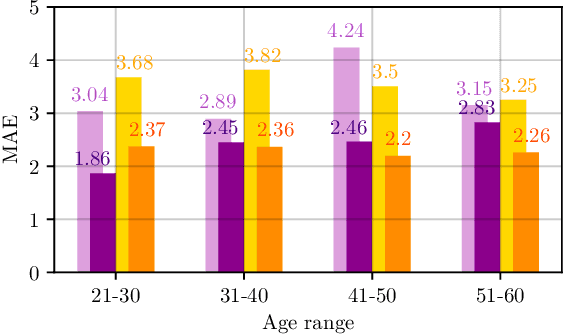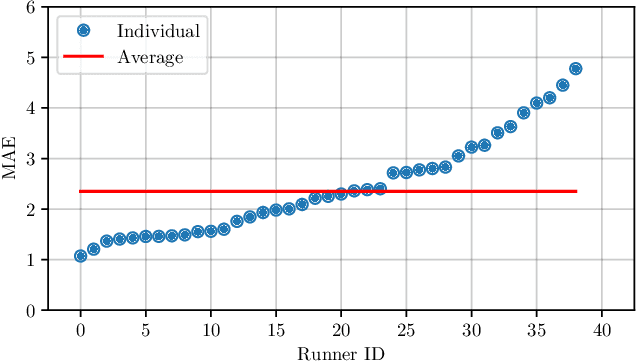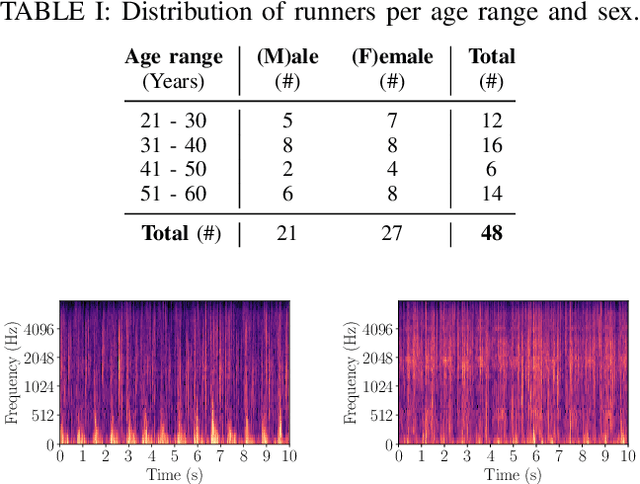Valerie Dieter
Fatigue Prediction in Outdoor Running Conditions using Audio Data
May 09, 2022



Abstract:Although running is a common leisure activity and a core training regiment for several athletes, between $29\%$ and $79\%$ of runners sustain an overuse injury each year. These injuries are linked to excessive fatigue, which alters how someone runs. In this work, we explore the feasibility of modelling the Borg received perception of exertion (RPE) scale (range: $[6-20]$), a well-validated subjective measure of fatigue, using audio data captured in realistic outdoor environments via smartphones attached to the runners' arms. Using convolutional neural networks (CNNs) on log-Mel spectrograms, we obtain a mean absolute error of $2.35$ in subject-dependent experiments, demonstrating that audio can be effectively used to model fatigue, while being more easily and non-invasively acquired than by signals from other sensors.
 Add to Chrome
Add to Chrome Add to Firefox
Add to Firefox Add to Edge
Add to Edge